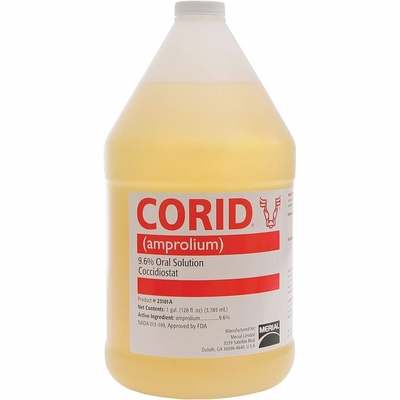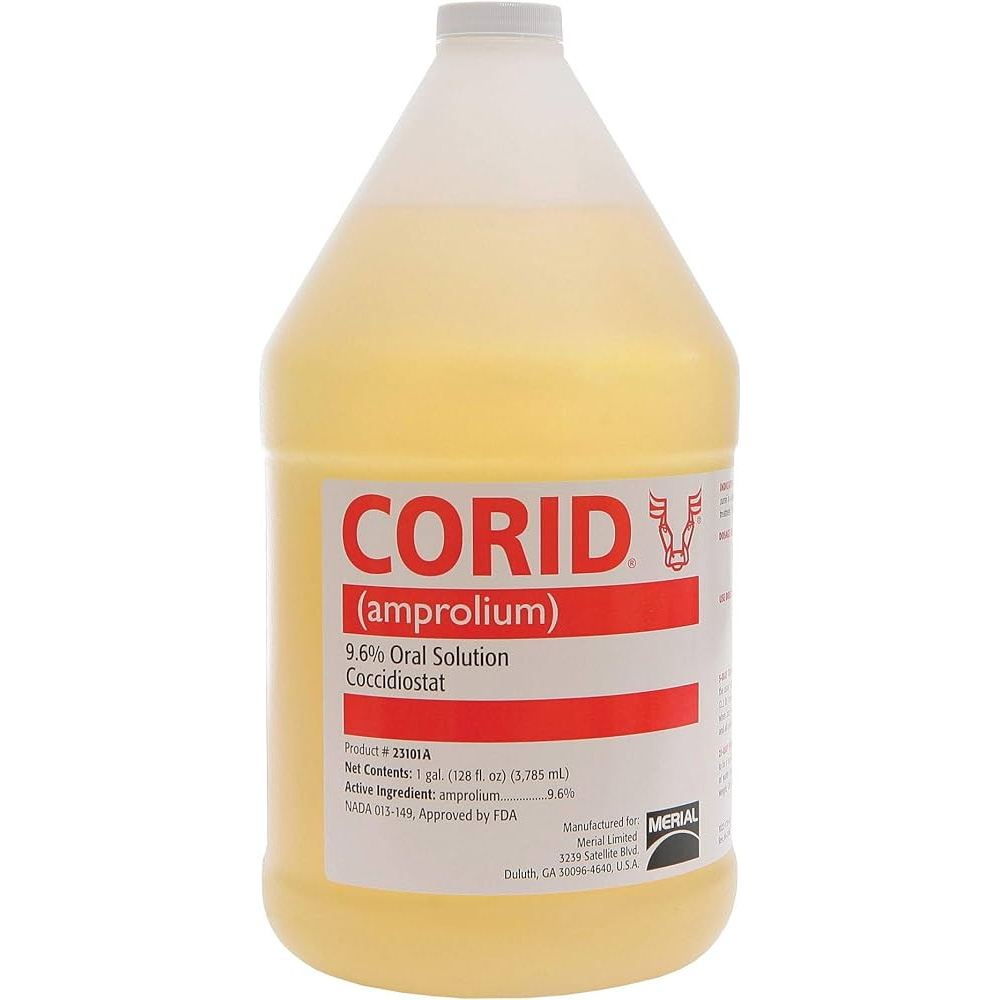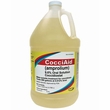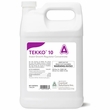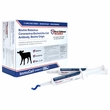Description
Corid (Amprolium) 9.6% Oral Solution is your ally in the battle against coccidiosis in livestock. Coccidiosis is a parasitic disease that can have severe consequences for livestock health and productivity. This solution contains a high 9.6% Amprolium concentration, which effectively controls coccidia parasites.
Administering Corid is straightforward; it can be given orally to cattle, poultry, and other livestock. Its proven efficacy is backed by extensive research and field trials, making it a trusted choice for coccidiosis management.
Corid is suitable for both preventive and therapeutic use, offering flexibility in addressing coccidiosis outbreaks in livestock. Protect your valuable animals from the effects of coccidiosis with Corid 9.6% Oral Solution.
Key Features:
- Coccidiosis Defense: Corid 9.6% Oral Solution is a powerful tool in the fight against coccidiosis, a common and debilitating livestock disease.
- High Amprolium Concentration: With a 9.6% Amprolium concentration, this solution offers effective control of coccidia parasites.
- Oral Administration: Corid is easy to administer orally, providing convenience for livestock owners.
- Proven Efficacy: Supported by research and field trials, Corid is a trusted solution for coccidiosis management.
- Preventive and Therapeutic: Suitable for both preventive and therapeutic use in cattle, poultry, and other livestock.
Intended Use:
Corid (Amprolium) 9.6% Oral Solution is intended for the prevention and treatment of coccidiosis in cattle, poultry, and other livestock.
Useful Information
Correct dosage and administration of Corid (Amprolium) 9.6% Oral Solution are crucial for effectively managing coccidiosis in livestock. Follow these guidelines for optimal results:
Dosage:
- Consult with a livestock veterinarian or farm advisor to determine the appropriate dosage of Corid based on the species of livestock, weight, and the severity of coccidiosis.
- Calculate the required amount of Corid 9.6% Oral Solution based on the recommended dosage per unit of weight for the specific livestock being treated.
Administration:
- Wear appropriate personal protective equipment (PPE), including gloves, when handling Corid.
- Mix the calculated dosage of Corid 9.6% Oral Solution with clean, fresh drinking water. Ensure that the solution is thoroughly mixed.
- Administer the solution orally to the affected livestock using a suitable dosing syringe or administration method recommended by your veterinarian.
- Ensure that each animal receives the correct dosage according to its weight. Be precise in your administration.
- Continue treatment for the prescribed duration, as recommended by your veterinarian or as indicated on the product label.
- Monitor the livestock for improvements in health and reduction in coccidiosis symptoms during and after treatment.
- Keep accurate records of the treatment, including the date, dosage, and any observations made during the course of treatment.
Safety Precautions:
- Always follow the product label instructions and guidelines provided by the manufacturer.
- Store Corid 9.6% Oral Solution in its original container in a cool, dry place, away from children and pets.
- Dispose of any empty containers in accordance with local regulations.
Consultation:
- For precise dosage and administration instructions specific to your livestock's needs, consult with a livestock veterinarian or farm advisor.
- If you observe any adverse reactions or have concerns during treatment, contact a veterinarian for guidance and support.

